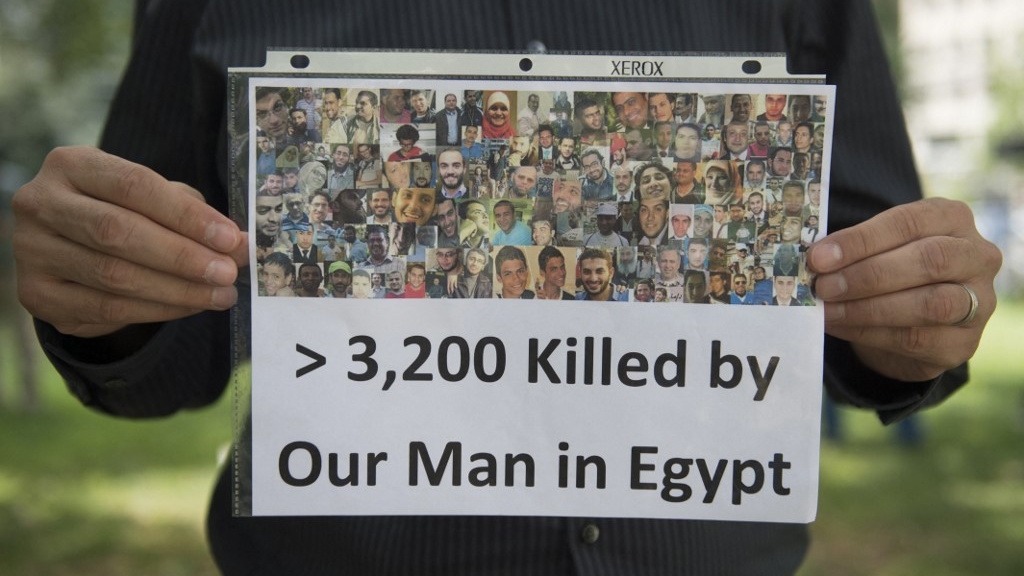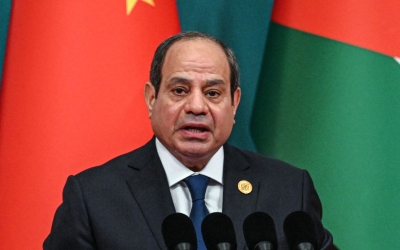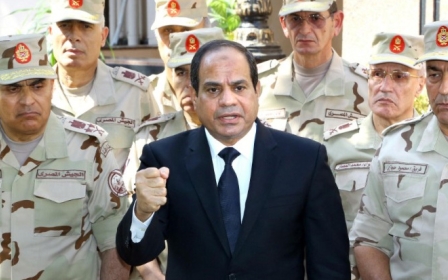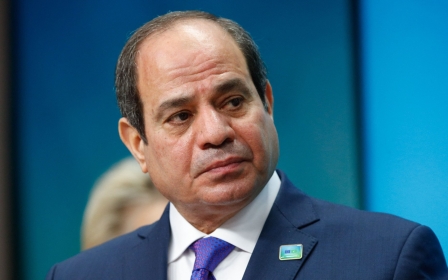Egypt: Mohamed Farid el-Tohamy leaves a bitter legacy of corruption

Last month, Egyptian Major General Mohamed Farid el-Tohamy passed away quietly. He leaves a shameful legacy of corruption and infamous massacres, which marked his career under former President Hosni Mubarak and, more recently, under current President Abdel Fattah el-Sisi, whose regime Tohamy helped to consolidate through political violence.
Born in 1947, Tohamy went on to military college and graduated in 1967. He ascended the ranks of the army as a mechanised infantry commander.
Later, he was appointed to the powerful post of director of military intelligence, which he ran for years before his appointment as director of the Administrative Control Authority (ACA) in 2004.
In theory, the ACA is an anti-corruption watchdog. In practice, it has been used as a tool by successive presidents to discipline state officials through selective targeting and by the military to extend its grip on the bureaucracy.
During his long tenure at the ACA, Tohamy was instrumental in enabling the Mubaraks to build their fortune and cover up their corruption. Tohamy was also Sisi’s protege, and he hired Sisi’s second son, Mustafa, an army officer, at the ACA.
New MEE newsletter: Jerusalem Dispatch
Sign up to get the latest insights and analysis on Israel-Palestine, alongside Turkey Unpacked and other MEE newsletters
The election of Mohamed Morsi proved a grave danger to Tohamy, who was sacked in September 2012, and an investigation into his corruption was ordered.
Vengeful return
Egypt’s repressive apparatus has long been fragmented to coup-proof the regime since it was engineered at the hands of the Free Officers in 1952. This has meant that the military, police and General Intelligence Service (GIS) were always in competition, with overlapping mandates, and rarely shared information.
The humiliating defeat of the police during the uprising that toppled Mubarak, and the ensuing army deployment in the streets on 28 January 2011, gave the military a chance to streamline and extend its control over the interior ministry. The GIS, however, remained unscathed and relatively independent from the military.
He advocated the complete eradication of the Muslim Brotherhood and was one of the architects of the Rabaa massacre
According to interviews I conducted with a former Morsi administration official, a former National Salvation Front cofounder, and Islamist politicians, the GIS leadership was not part of the plan to stage the 2013 coup. This did not stem from the GIS belief in democracy, but rather out of fear of further instability that a coup could unleash.
In that context, one can understand why, just two days after the coup, on 5 July 2013, Major General Mohamed Raafat Shehata, the director of the GIS, was sacked. He was appointed interim president Adly Mansour’s “adviser on security affairs”, an irrelevant post from which he was driven into oblivion. Shehata was replaced by none other than Tohamy.
The corruption cover-up charges, instigated under Morsi against Tohamy, were shelved, and Tohamy returned with a vengeance. He advocated the complete eradication of the Muslim Brotherhood and was one of the architects of the Rabaa massacre.
Tohamy was among the “hawks”. He always referred to the revolution as the “January catastrophe”, and opposed any accommodation with youth movements and civil society groups. He blamed Mubarak’s “leniency” towards youth and rights activists for instigating such a “catastrophe”, and saw calls for the military to exit the political scene to “deceitfully mean that the country gets completely out of control”.
GIS troubles
The status of the GIS was causing grave concerns for Sisi and his clique. In a leaked call between Sisi and his office director Major General Abbas Kamel, which purportedly dates back to February 2014, the latter described the GIS in colloquial terms as “unreliable in everything”.
Tohamy was tasked with streamlining the agency. In 17 months, he retired 25 senior agency officials. The decrees cited the retirements as being based on officials’ own requests or due to health reasons - a classic legal manoeuvre by the state to ensure the paperwork is done right and to leave no room for future lawsuits. At least 46 other officials, mostly from middle and low ranks, were transferred to civilian ministries or other state institutions (for example, the Cairo Governorate).
Tohamy’s star seemed to be ascending when, on 4 December 2014, Mekameleen TV, a satellite station run by Egyptian exiles, aired audio leaks of private phone conversations between Assistant Defence Minister for Legal and Constitutional Affairs Mamdouh Shahin, Army Chief of Staff Mahmoud Hegazi, Navy Commander Osama el-Gindi, Interior Minister Muhammad Ibrahim Mustafa, and Kamel, who was then director of Sisi’s office. The top generals were discussing forging documents related to Morsi’s trial.
Who recorded and leaked such sensitive conversations? Egyptian observers - including Osama Gaweesh, the Mekameleen TV host who aired the leaks - believe it was disgruntled GIS senior officials. Two weeks later, Tohamy was relieved of his post. Health reasons were cited in the state-run media.
Some speculated at the time that Tohamy’s absence was necessary since he was an obstacle to rapprochement with the local opposition and Qatar due to his hawkish stands. But such speculation proved false, as the regime’s policies on Qatar and the opposition did not change after Tohamy’s dismissal.
Moreover, his successor, Major General Khaled Fawzy, was just as hawkish. Fawzy formerly ran Egypt’s National Security Agency and was among the “proponents of a hardline approach to national security, with little room for individual rights or political dissent”. This gives weight to claims that Tohamy lost his job due to the leaks, for which the GIS was blamed.
Following his retirement, Tohamy disappeared from public life until his quiet death last month, after a decade that saw the regime he helped build still ruling over a country that has degenerated into a failed state.
The views expressed in this article belong to the author and do not necessarily reflect the editorial policy of Middle East Eye.
Middle East Eye delivers independent and unrivalled coverage and analysis of the Middle East, North Africa and beyond. To learn more about republishing this content and the associated fees, please fill out this form. More about MEE can be found here.






